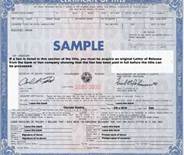Great news for Florida consumers with student loans! On April 21, 2015, the Middle District of Florida, Tampa Division, Bankruptcy Court issued a ruling on behalf of our client that a National Collegiate Student Loan Trust would be barred from pursuing student loans in Florida because the five year statute of limitations had expired. In doing so, the Court entered Final Judgment in favor of our client.
However, NCSLT apparently did not like this ruling and has subsequently filed an appeal. As neither party has submitted briefs yet, the outcome of the appeal remains unknown and should be resolved in approximately 4-6 months or less.
These clients owe a devastating $161,000 in private student loans. They also owe only about $20,000 in federal loans for which payments are current in a repayment program. However, prior to hiring us, these clients were not presented with realistic payment terms from the private lender. The household income for this family of four is only $40,000 as they have two young children and the wife stays at home to care for them.
 Reboot Your Life: Tampa Student Loan and Bankruptcy Attorney Blog
Reboot Your Life: Tampa Student Loan and Bankruptcy Attorney Blog


 Today, a legislator introduced a
Today, a legislator introduced a  We are still able to strip second mortgages in a Chapter 7 bankruptcy here in Tampa Bay. However, there is a risk that the window of opportunity may be closing. Bank of America has filed several challenges to the U.S. Supreme Court in the past couple of years. Two of these cases, the U.S. Supreme Court has granted certiorari and has agreed to hear them: Bank of America v. Caulkett, Case No. 13-1421 and Bank of America, v. Toledo-Cardonna, Case No. 14-163. Currently, we are in the only Circuit that allows the stripping of second mortgages and HOA liens in a Chapter 7. The only requirement is that the home be worth less than the first mortgage at the time of filing. Once stripped, the second mortgage lien is gone forever, unless the bankruptcy discharge is revoked which is very rare.
We are still able to strip second mortgages in a Chapter 7 bankruptcy here in Tampa Bay. However, there is a risk that the window of opportunity may be closing. Bank of America has filed several challenges to the U.S. Supreme Court in the past couple of years. Two of these cases, the U.S. Supreme Court has granted certiorari and has agreed to hear them: Bank of America v. Caulkett, Case No. 13-1421 and Bank of America, v. Toledo-Cardonna, Case No. 14-163. Currently, we are in the only Circuit that allows the stripping of second mortgages and HOA liens in a Chapter 7. The only requirement is that the home be worth less than the first mortgage at the time of filing. Once stripped, the second mortgage lien is gone forever, unless the bankruptcy discharge is revoked which is very rare. As a Florida consumer bankruptcy attorney, we have been able to remove and strip off second mortgages due to the 11th Circuit’s decision in McNeal a couple years back. It is the only Circuit in the country that allows for a second mortgage lien to be stripped from homestead property. The key has been to show that the home does not have value over and above the amount owed on the first mortgage.
As a Florida consumer bankruptcy attorney, we have been able to remove and strip off second mortgages due to the 11th Circuit’s decision in McNeal a couple years back. It is the only Circuit in the country that allows for a second mortgage lien to be stripped from homestead property. The key has been to show that the home does not have value over and above the amount owed on the first mortgage. The Affordable Care Act has caused millions of people to sign up for Medicaid for the first time. Medicaid is a program of free health insurance provided to low to no income individuals. Although the care itself is free, there is a
The Affordable Care Act has caused millions of people to sign up for Medicaid for the first time. Medicaid is a program of free health insurance provided to low to no income individuals. Although the care itself is free, there is a  Bank of America simply cannot get it right. Our Tampa, Florida law firm sees violations regularly whether it involves foreclosure or bankruptcy. Of particular note these violations are all one way and they put money in BofA’s pocket. If they were truly errors, wouldn’t they immediately be corrected once pointed out and wouldn’t the errors go both ways?
Bank of America simply cannot get it right. Our Tampa, Florida law firm sees violations regularly whether it involves foreclosure or bankruptcy. Of particular note these violations are all one way and they put money in BofA’s pocket. If they were truly errors, wouldn’t they immediately be corrected once pointed out and wouldn’t the errors go both ways?  Under Florida law, a creditor has up to twenty years to try and collect a judgment. That’s an intimidating number, two whole decades. Something not to take lightly. To become a lien on real estate, a certified copy of a final judgment must be recorded in the public records in the county in which the real property is located.
Under Florida law, a creditor has up to twenty years to try and collect a judgment. That’s an intimidating number, two whole decades. Something not to take lightly. To become a lien on real estate, a certified copy of a final judgment must be recorded in the public records in the county in which the real property is located. It will take less time than you think to qualify to buy a home after bankruptcy. I generally advise my Florida clients that they will likely qualify within 2-5 years.
It will take less time than you think to qualify to buy a home after bankruptcy. I generally advise my Florida clients that they will likely qualify within 2-5 years. This debtor in South Florida recently lost his free and clear car in bankruptcy (actually the debtor was allowed to pay for the one-half interest in a Chapter 13 so it wasn’t quite as bad as it initially appears). Joint ownership is getting murkier and legal advise is definitely needed to preserve vehicles, money in bank accounts and even real property. Other bankruptcy cases in South Florida have recently attacked the “bare legal title” concept. These situations often arise when debtors share bank accounts, vehicles or even real property with parents, children or other relatives. Generally, we can show that the debtor held bare legal title only for probate or other purposes and the property is not subject to turnover by the bankruptcy court. However, the law in this area is getting rather murky. The facts in this case were as follows: a vehicle purchased by a debtor’s mother, but titled in the name of the debtor and his mother, and the debtor paid the insurance and maintenance. In re Fletcher, 2012 WL 2062394 (Bankr. S.D. Fla., March 6, 2012).
This debtor in South Florida recently lost his free and clear car in bankruptcy (actually the debtor was allowed to pay for the one-half interest in a Chapter 13 so it wasn’t quite as bad as it initially appears). Joint ownership is getting murkier and legal advise is definitely needed to preserve vehicles, money in bank accounts and even real property. Other bankruptcy cases in South Florida have recently attacked the “bare legal title” concept. These situations often arise when debtors share bank accounts, vehicles or even real property with parents, children or other relatives. Generally, we can show that the debtor held bare legal title only for probate or other purposes and the property is not subject to turnover by the bankruptcy court. However, the law in this area is getting rather murky. The facts in this case were as follows: a vehicle purchased by a debtor’s mother, but titled in the name of the debtor and his mother, and the debtor paid the insurance and maintenance. In re Fletcher, 2012 WL 2062394 (Bankr. S.D. Fla., March 6, 2012).